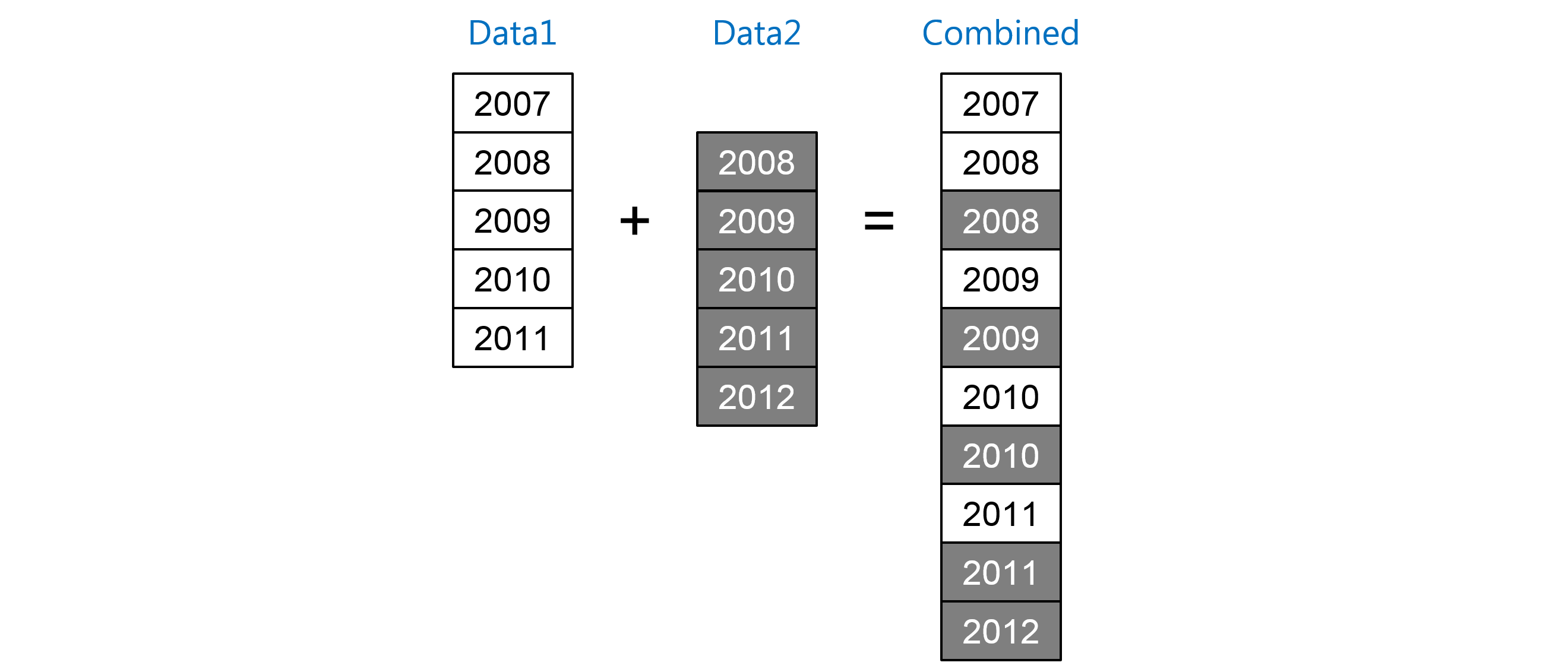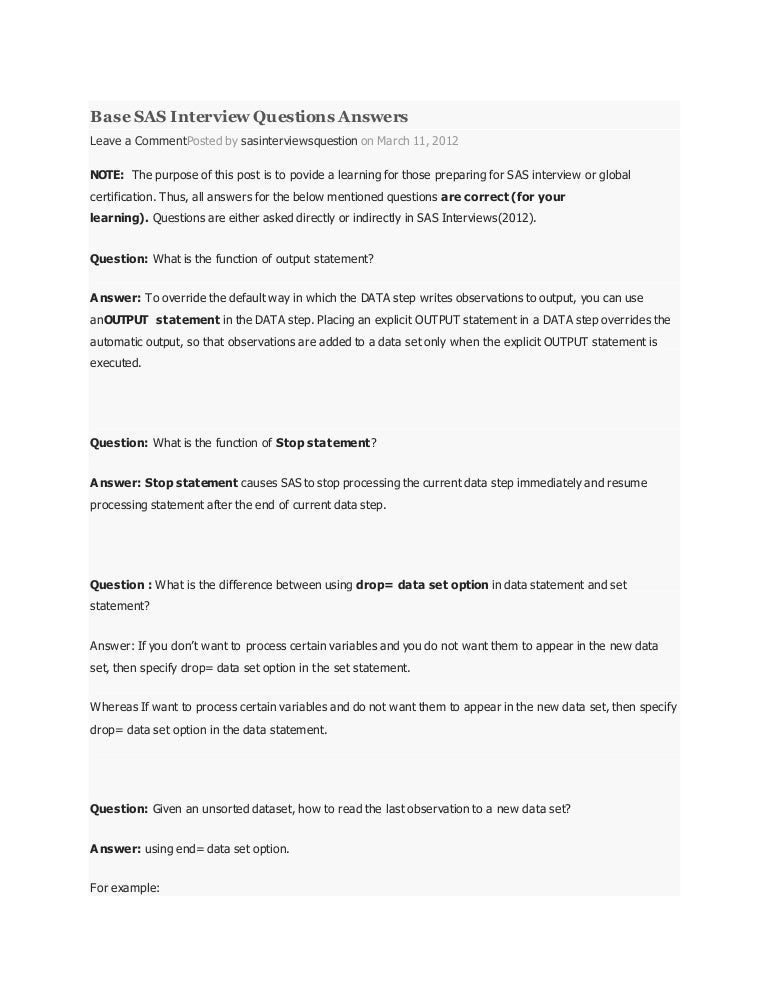
- BASE AND ADVANCED SAS INTERVIEW QUESTIONS HOW TO
- BASE AND ADVANCED SAS INTERVIEW QUESTIONS SOFTWARE
- BASE AND ADVANCED SAS INTERVIEW QUESTIONS CODE
- BASE AND ADVANCED SAS INTERVIEW QUESTIONS PROFESSIONAL
Hadoop BIG DATA Interview Questions You'll Most Likely Be Asked (Job Interview Questions #11) (Paperback):
BASE AND ADVANCED SAS INTERVIEW QUESTIONS SOFTWARE
Software Testing Interview Questions You'll Most Likely Be Asked (Job Interview Questions #10) (Paperback):

Java / J2EE Interview Questions You'll Most Likely Be Asked (Job Interview Questions #9) (Paperback): Hibernate, Spring & Struts Interview Questions You'll Most Likely Be Asked (Job Interview Questions #7) (Paperback):ĬORE JAVA Interview Questions You'll Most Likely Be Asked (Job Interview Questions #8) (Paperback): SQL Server Interview Questions You'll Most Likely Be Asked (Job Interview Questions #2) (Paperback):Īdvanced JAVA Interview Questions You'll Most Likely Be Asked (Job Interview Questions #3) (Paperback):Ĭ & C++ Interview Questions You'll Most Likely Be Asked (Job Interview Questions #4) (Paperback):Ĭ# Interview Questions You'll Most Likely Be Asked (Job Interview Questions #5) (Paperback):ĭata Structures & Algorithms Interview Questions You'll Most Likely Be Asked (Job Interview Questions #6) (Paperback): Oracle Database Administration Interview Questions You'll Most Likely Be Asked (Job Interview Questions #1) (Paperback): One final pointer: If, during your thorough review of the credential web page, you didn't notice that the practice exam is currently free, go back now and take a look at the "Training & Exam Preparation" section for the link to this valuable resource.This is book number 28 in the Job Interview Questions series. I know that all of this is a lot to digest. Don’t worry about remembering this specific error message, we provide a reminder within the macro questions on the exam in case it happens to you so that you can get back on track quickly.Īnd to help you along with your prep, here are 3 papers from SAS conferences to supplement your studying, one from each topic area of the exam: If you get notes in your logs such as “ The quoted string currently being processed has become more than 262 characters long”, you have arrived in “ confused quote-land.” If this happens to you, you should save your programs, close your SAS application, then reopen it and edit your program.
BASE AND ADVANCED SAS INTERVIEW QUESTIONS CODE
Resubmitting your code after fixing the error doesn’t resolve the problem in SAS and you can find yourself stuck with repeated, unexpected messages in your log. Some syntax errors (like unbalanced quotes or missing semicolons) that are rather harmless in DATA Step programs can cause weird problems when they occur in SAS Macro code. You will create some SAS Macro programs during this exam. This is explained in the exam introduction, but we have noticed that some candidates overlook this point. That is done automatically when you start SAS.
BASE AND ADVANCED SAS INTERVIEW QUESTIONS HOW TO
More information about the scoring macro and how to use it is in the video on the credential page linked above.Īnother small difference from the Specialist exam is that you don't need to define libraries on the advanced exam. There is still a lot of flexibility for you to write your own code, we aren't looking for an exact match to a specific 'answer-key' program, as we know there different ways to get to the same solution. To accomplish this, you will run a saved SAS Macro against your completed solution, and this macro will evaluate both the content of your code and the output of your code. For example, if the project asked you to solve a problem with PROC SQL, we need to ensure that you actually used PROC SQL and not a DATA Step. Because you are being assessed on specific skills, we place more emphasis on your code to be sure that you solved the problem as described.
BASE AND ADVANCED SAS INTERVIEW QUESTIONS PROFESSIONAL
The Advanced Programming Professional exam is different. First, on the Base Programming exam, you answered questions about your output data sets to determine if you completed the projects correctly. Next, let's talk about the big difference between this exam and the Base Programming Specialist performance-based exam. You don't want to miss this, as it will help you set-up your lab environment quickly and smoothly. This includes a video demonstration of the exam experience that will show you the beginning of the exam. Those of you that have earned our newer SAS Certified Specialist: Base Programming Using SAS 9.4 credential have already tackled a performance-based exam, but there is still room for some pointers to explain some differences and tips for this exam.įirst, as always, review the information on the credential web page.

For those that are coming from the older SAS Base Programmer for SAS 9 credential, this will be your first performance-based exam.

You have decided that you are ready to take your next step on your SAS certification journey and are ready to go for the SAS Certified Professional: Advanced Programming Using SAS 9.4 credential.


 0 kommentar(er)
0 kommentar(er)
